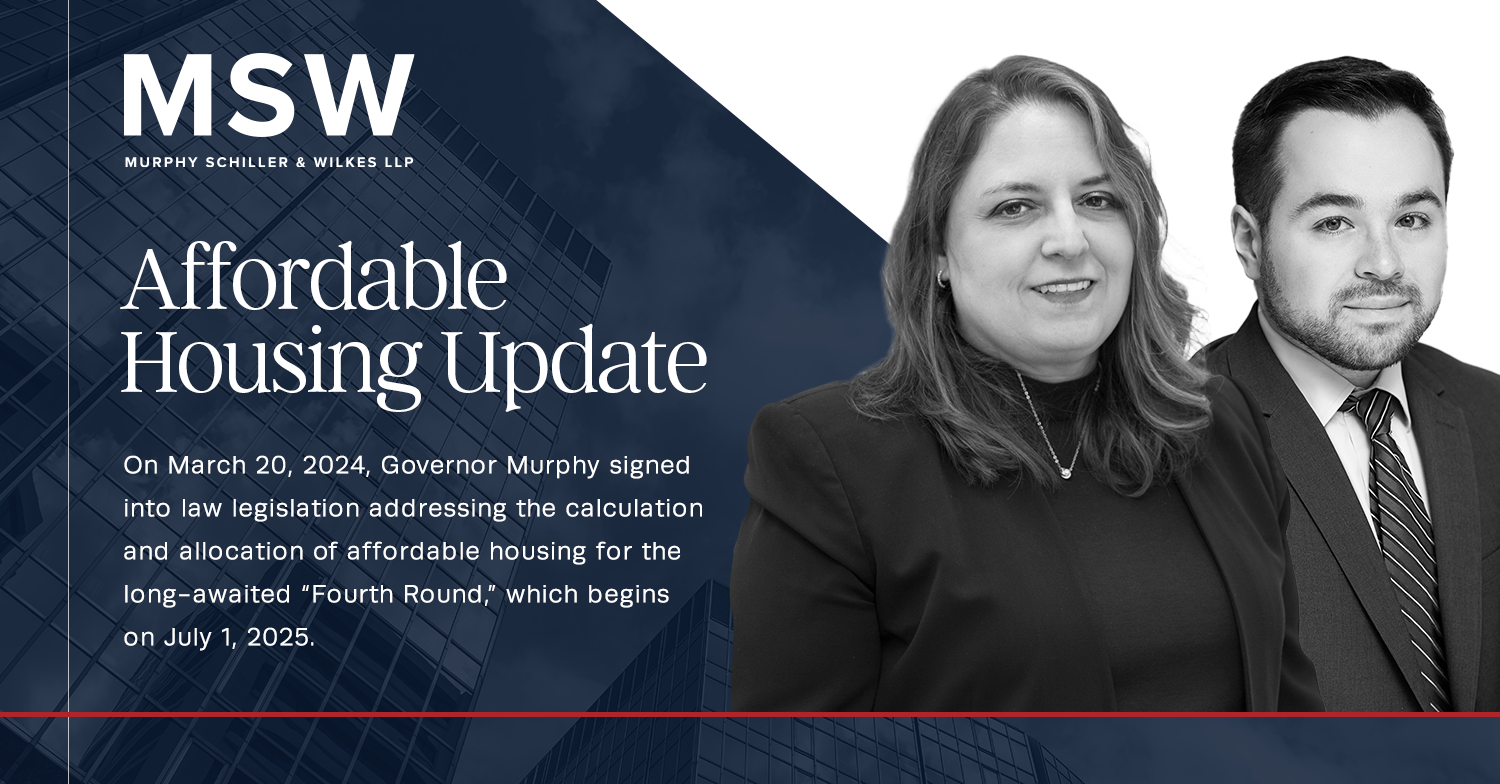
On March 20, 2024, Governor Murphy signed into law legislation addressing the calculation and allocation of affordable housing for the long-awaited “Fourth Round,” which beings on July 1, 2025. The legislation is an attempt to remedy the arduous and drawn-out process of the Third Round, under which municipalities could file declaratory judgments seeking to have a court determine their obligation of affordable housing opportunities. Significantly, the new legislation disbands the long defunct Council on Affordable Housing (“COAH”) and creates an easier process to determine current and prospective need. Municipalities may diverge from this number in certain circumstances, but must adopt by resolution its obligation by January 1, 2025 to maintain immunity from a Builder’s Remedy lawsuit. Discrepancy over obligations between municipalities and developers challenging the allocation would be resolved under the Affordable Housing Dispute Resolution Program (the “Program”). The Program will consist of between 3 and 7 members, but always an odd number of former judges, planners, or other people determined to have the requisite knowledge to handle such disputes.
The legislation provides adjustments and bonus credits to municipalities, of which collaborative developers may take advantage. Municipalities may use age-restricted housing as 30% of its obligation and transitional housing as 10%. However, the legislation bans attempting to use different types of affordable housing for “double credit” as had been previously available in certain circumstances. Bonus credits are available for a wide variety of developments including disabled housing, age-restricted, very-low income, certain transit locations and other potential areas. The legislation also provides bonus credits for housing constructed on certain land that was previously used for retail, office, or commercial uses. In an effort to require more transparency, there are now requirements that certain information be available online. It is important to note that affordability restrictions are increased from 30 to 40 years in most circumstances.
Municipalities that fail to adopt a housing plan or adopt their required number by certain deadlines may be subject to a Builder’s Remedy lawsuit. There are also circumstances under the legislation where a municipality may only be entitled to presumptive validity and not immunity from such suits. However, with the clearer calculation numbers and experiences from the Third Round for municipalities, these suits should be a last and not first resort.
While the new law is expansive, it is important to understand how developers can benefit from this legislation. Litigation is expensive and working with combative towns can be counterproductive, so what are options are out there to avoid this?
- Look for sites which had previously been designated in the Third Round but not constructed and see if opportunity exists to include these properties with density bonuses or other features which make the projects more attractive.
- Educate municipalities on the new law and the easy calculation method and show them how you will provide the affordable units without a negative impact on the municipality. An important consideration here is whether the municipality would rather see several smaller projects or one large project to meet their obligation.
- Make yourself a part of the early planning process for municipalities, taking proactive steps to approach municipalities about properties which may help satisfy the need.
- Do not take a combative position from the start, which can prevent fruitful dialogue from beginning.
- Understand which municipalities have vacant land adjustments, infrastructure issues, and other restrictions which may prevent projects even if a need exists.
If you are looking to understand the Fourth Round and its impact, please feel free to contact Matthew E. Gilson at mgilson@murphyllp.com or Lisa E. Lomelo at llomelo@murphyllp.com.
Murphy Schiller & Wilkes LLP (MSW) is a boutique law firm servicing the commercial real estate and construction industries. Headquartered in Newark, New Jersey, the firm represents a wide range of clients, including institutional, publicly traded real estate companies, international and regional lenders, national contractors and subcontractors, and family offices. The firm has been ranked as a top law firm by both Chambers & Partners and U.S. News & World Report.